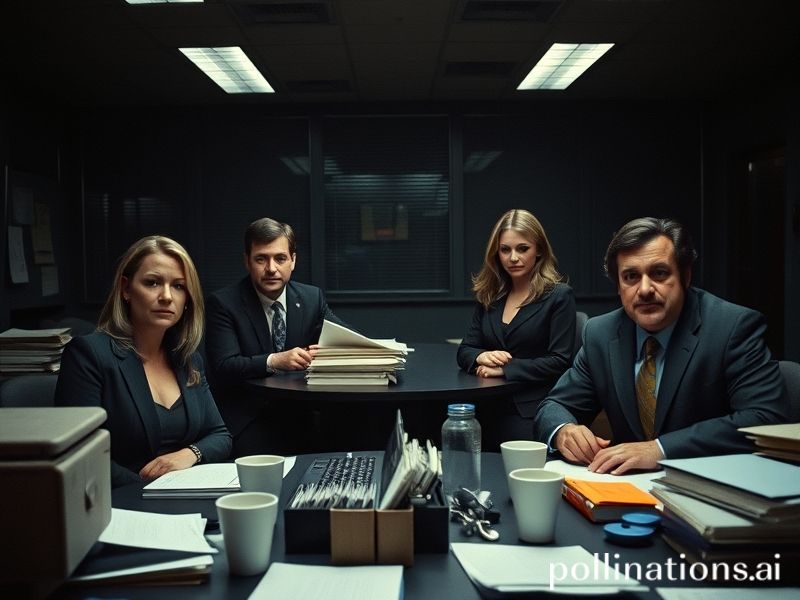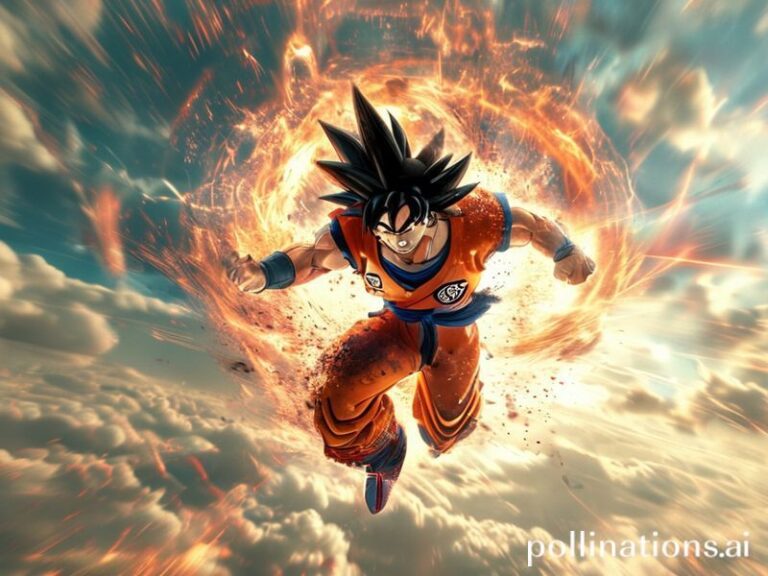Detective Diplomacy: How the SVU Cast Became America’s Most-Exported Moral Compass
The Global Bureaucracy of Fictional Victims: How the Law & Order: SVU Cast Became an International Export Harder to Regulate Than Plutonium
PARIS—Across the river from Notre-Dame, a small plaque on the Quai des Orfèvres discreetly announces the Brigade de Protection des Mineurs. Inside, a lieutenant who insists on remaining anonymous admits between drags of an unfiltered Gauloise that his detectives binge-watch reruns of Law & Order: SVU “for the English.” When asked whether the show’s cast—Mariska Hargitay’s unblinking empathy, Ice-T’s perennial sunglasses, Christopher Meloni’s barely contained wrath—has influenced Franco-interrogation technique, he shrugs: “We still can’t legally break a suspect’s croissant, but yes, the Americans have made us feel inadequate about our lighting.”
From Lagos to Lahore, the long-running procedural has quietly metastasized into the most durable piece of soft power Washington never budgeted for. While the State Department struggles to explain democracy to skeptical parliaments, Detective Olivia Benson is already on Ukrainian Netflix, teaching lawmakers how to emote concern in 42-minute increments. The cast, once merely overworked actors in a Queens soundstage, now function as a roving embassy of American angst, dispensing jurisprudence like travel-sized shampoo.
In Kenya, the show airs Thursdays on NTV, sandwiched between agricultural reports and evangelical infomercials. Nairobi taxi drivers recognize “that Benson lady” more readily than the sitting U.S. ambassador; one admitted he reroutes around Uhuru Park at dusk “just in case there’s a body.” Meanwhile, in Seoul, the cast’s dubbed voices have become ASMR fodder for overstressed K-pop trainees seeking the soothing timbre of institutional justice. A manager at JYP Entertainment confessed they pipe SVU episodes into vocal booths to keep idols “traumatized but motivated.”
The irony, of course, is that the ensemble’s fictional caseload—ritualized weekly horrors from a country that can’t decide whether assault rifles are fashion accessories—now serves as a global benchmark for victim advocacy. NGOs from Bogotá to Bangalore quote SVU statistics in grant proposals, blissfully unaware the numbers are written by caffeinated screenwriters who last read a criminology textbook during the Bush administration. UN Women once circulated a press release praising the show’s “impact on gender-sensitive policing,” then quietly retracted it when someone realized Ice-T’s character still hasn’t filed paperwork since 2003.
Even diplomacy has bent the knee. During tense trade talks in Geneva, a Swiss delegate opened negotiations by thanking the U.S. delegation “for allowing us to import your guilt complex in syndication.” The compliment landed like a lead balloon, but the point stood: The cast has become shorthand for a nation that outsources its moral reckoning to prime time. When the International Criminal Court wanted to explain witness protection to Congolese villagers, they screened the episode where Benson hides a sex-trafficked tween in a motel off I-95. The villagers nodded politely, then asked whether the motel had running water.
Back home, the actors remain endearingly oblivious to their geopolitical reach. Hargitay’s real-life Joyful Heart Foundation ships trauma-care kits worldwide, each emblazoned with a tiny SVU logo—effectively turning Haitian hurricane survivors into inadvertent Nielsen families. Meloni, now rebooted on Organized Crime, recently discovered his anguished face adorns protest signs in Santiago. “I thought they wanted my autograph,” he told Variety, “but they were using me to demand pension reform. Which, honestly, tracks.”
The show’s 25th season coincides with the UN’s Year of Survivor-Centered Justice, a coincidence so on-the-nose it could only be scripted. Delegates in Vienna have proposed an SVU-themed panel: “Fictional Detectives as Soft-Law Instruments.” Rumor has it China’s delegate wants veto power over plotlines involving Uyghurs. The U.S. countered by threatening to release deleted scenes of Ice-T interrogating a cryptocurrency bro. Talks continue.
As climate change redraws borders and democracies wobble like cheap barstools, the cast endures—dubbed, subtitled, meme-ified—offering the planet a comforting illusion that somewhere, a stern brunette will always believe you. Whether that’s humanitarian outreach or imperial Stockholm syndrome is above my pay grade. But somewhere in a Manila cybercrime unit, a rookie detective practices Benson’s signature head-tilt in the mirror, preparing for a caseload that real America exports faster than corn. The world, it seems, will always need victims—preferably photogenic ones, wrapped in a Dick Wolf bumper sticker and sold back to us with commercial breaks.







